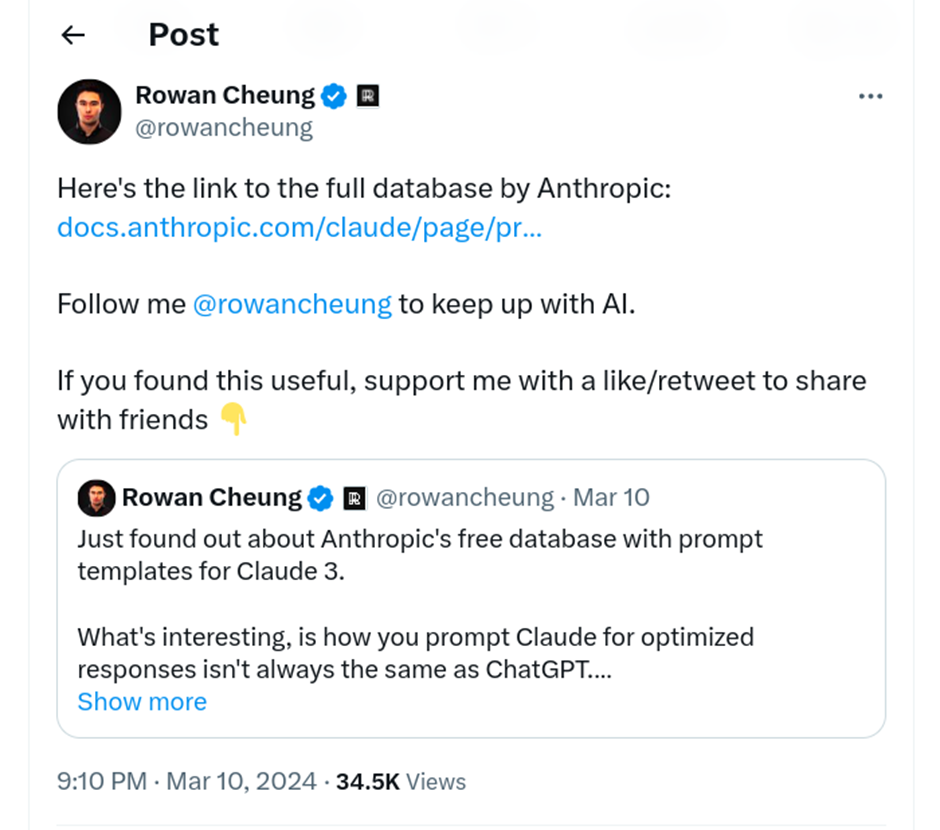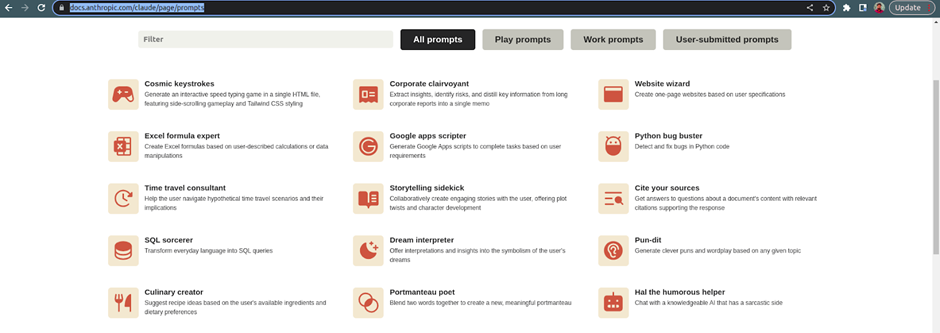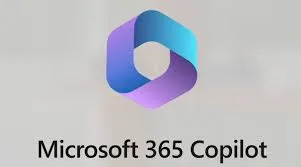Introduction
The field of large language models (LLMs) like Anthropic’s Claude AI holds immense potential for creative text generation, informative question answering, and task automation. However, unlocking the full capabilities of these models requires effective user interaction. This is where the art of prompting comes into play.
Prompting allows users to provide clear, concise instructions guiding Claude’s responses. It serves as a bridge between human intent and LLM execution, ensuring Claude leverages its vast knowledge base to deliver exceptional results. This article, inspired by a Twitter thread by Rowan Cheng, explores the concept of prompting in Claude AI.

We will delve into its significance, equip you with valuable resources for crafting powerful prompts, and ultimately empower you to unlock the true potential of this innovative technology.
Table of Contents
What is Prompting and Why Does it Matter?
In LLMs like Anthropic’s Claude AI, prompting acts as the conductor’s baton, orchestrating the model’s responses to achieve a desired outcome. It’s essentially a set of instructions you provide to Claude, guiding it toward specific creative text formats, informative answers to your questions, or even completing tasks following your wishes.
But why is prompting such a crucial element in unlocking Claude’s potential? LLMs are trained on massive datasets of text and code, granting them a vast knowledge base. However, this information remains unrefined without proper direction. Prompting acts as a bridge, allowing you to refine Claude’s focus and tailor its responses to your needs. By providing clear instructions, you empower Claude to leverage its knowledge in a targeted way, resulting in more relevant, informative, and creative outputs.
Imagine Claude as a powerful search engine with the ability not just to find information, but also to analyze and utilize it in different ways. Prompting allows you to become the search query architect, shaping Claude’s exploration of its knowledge base and ultimately dictating the format and content it delivers.
Crafting Effective Prompts for Claude
Having grasped the significance of prompting in Claude AI, let’s delve into the art of crafting effective prompts that unlock its true potential. Consider yourself a prompt engineer, shaping Claude’s responses with precision and maximizing its capabilities. Here, we’ll explore several resources and techniques to elevate your prompting game:
Be Clear and Direct in Your Instructions
Clarity is paramount in crafting effective prompts. Imagine Claude as a student eager to please but needing precise instructions. Avoid ambiguity and use clear, concise language to guide Claude towards the desired output.
For instance, instead of prompting with “Write a story,” specify the genre, and desired tone, or even provide starting sentences to set the stage.
Here’s an example:
Normal Prompt:
User:
Please remove all personally identifiable information from this text:
{{TEXT}}
Updated Prompt:
User:
We want to anonymize some text by removing all personally identifiable information (PII).Please follow these steps:
1. Replace all instances of names, phone numbers, and home and email addresses with 'XXX'.
2. If the text contains no PII, copy it word-for-word without replacing anything.
3. Output only the processed text, without any additional commentary.
Here is the text to process:
{{TEXT}}
Use Examples to Illustrate the Desired Outcome
Sometimes, even the clearest instructions require additional context. This is where the power of examples comes into play. Think of it as showing, not just telling. Provide Claude with examples of the kind of output you’re looking for, whether it’s a specific writing style, answer format, or even the overall tone. For instance, if you want Claude to write a funny poem, you could include a few lines of humorous poetry as an example to guide its understanding.
For example:
User:
I will give you some quotes. Please extract the author from the quote block.Here is an example:
<example>
Quote:
"When the reasoning mind is forced to confront the impossible again and again, it has no choice but to adapt."
― N.K. Jemisin, The Fifth Season
Author: N.K. Jemisin
</example>Quote:
"Some humans theorize that intelligent species go extinct before they can expand into outer space. If they're correct, then the hush of the night sky is the silence of the graveyard."
― Ted Chiang, Exhalation
Author:
Output:
Ted Chiang
Break Down Complex Tasks with Chain Prompts
When dealing with intricate tasks, consider employing the concept of chain prompts. This technique involves dividing the task into smaller, more manageable steps, each presented to Claude as a separate prompt.
Imagine you want Claude to write a detailed blog post on a specific topic. Instead of overwhelming it with a single prompt, break it down. First, prompt Claude to generate an outline of the blog post with key points. Then, provide prompts for each section, guiding Claude on the specific content to include. This step-by-step approach ensures Claude maintains focus and delivers a well-structured, informative piece.
Example of Chain Prompt
User:
Here is a document, in <document></document> XML tags:<document>
{{DOCUMENT}}
</document>Please extract, word-for-word, any quotes relevant to the question {{QUESTION}}. Please enclose the full list of quotes in <quotes></quotes> XML tags. If there are no quotes in this document that seem relevant to this question, please say "I can't find any relevant quotes".
User:
I want you to use a document and relevant quotes from the document to answer a question.Here is the document:
<document>
{{DOCUMENT}}
</document>Here are direct quotes from the document that are most relevant to the question:
<quotes>
{{QUOTES}}
</quotes>Please use these to construct an answer to the question "{{QUESTION}}"
Ensure that your answer is accurate and doesn't contain any information not directly supported by the quotes.
Refine and Iterate with “Ask Claude for Rewrites”
Even the most carefully crafted prompts may not always yield perfect results. Don’t get discouraged! Anthropic offers a valuable feature called “Ask Claude for Rewrites”. This allows you to provide feedback on Claude’s initial output and request revisions based on your specific criteria.
Think of it as a collaborative editing process. You can highlight areas that require improvement and provide specific instructions for Claude to refine their work. This iterative approach allows you to guide Claude towards achieving the desired outcome, maximizing the quality and effectiveness of its responses.
User
Here's a paragraph:
<paragraph>
{{PARAGRAPH}}
</paragraph>I'd like you to rewrite it using the following instructions:
<instructions>
{{INSTRUCTIONS}}
</instructions>Please put your rewrite in <rewrite></rewrite> tags.
Leverage the Claude Prompt Library
Anthropic provides a treasure trove of pre-made prompts, readily available in the Claude Prompt Library. This library serves as a launchpad for various tasks, offering prompts for creative writing in different styles, factual question answering, and even code generation. Think of it as a recipe book for Claude, where you can find pre-defined instructions for achieving specific outcomes. Don’t hesitate to explore the library and discover prompts that align with your needs.

Conclusion
Mastering the art of prompting is a transformative journey that empowers users to unleash the full potential of LLMs like Claude AI. By understanding the significance of clear, well-crafted prompts and employing techniques such as providing examples, breaking down complex tasks into smaller steps, and iterating through feedback and rewrites, you can guide Claude to deliver exceptional, tailored outputs.
Anthropic’s Claude Prompt Library serves as a valuable resource, offering pre-made prompts to kickstart your exploration and inspire your own creations. However, the true mastery lies in your willingness to experiment, learn from trial and error, and continuously refine your prompting skills.
As the field of AI language models continues to evolve, the ability to effectively communicate with these powerful systems will become increasingly crucial. By embracing the art of prompting, you position yourself at the forefront of this technological revolution, poised to leverage Claude’s vast knowledge and capabilities to achieve remarkable results across a wide range of applications.
Stay tuned to Analytics Vidhya blogs for latest advancements in the world of Generative AI!
- SEO Powered Content & PR Distribution. Get Amplified Today.
- PlatoData.Network Vertical Generative Ai. Empower Yourself. Access Here.
- PlatoAiStream. Web3 Intelligence. Knowledge Amplified. Access Here.
- PlatoESG. Carbon, CleanTech, Energy, Environment, Solar, Waste Management. Access Here.
- PlatoHealth. Biotech and Clinical Trials Intelligence. Access Here.
- Source: https://www.analyticsvidhya.com/blog/2024/03/prompting-techniques-for-anthropics-claude-ai/
- :has
- :is
- :not
- :where
- 12
- 13
- 15%
- 17
- 8
- a
- ability
- accurate
- Achieve
- achieving
- across
- acts
- adapt
- Additional
- addresses
- advancements
- again
- AI
- AI models
- align
- All
- Allowing
- allows
- also
- always
- Ambiguity
- an
- analytics
- Analytics Vidhya
- analyze
- and
- answer
- answering
- answers
- Anthropic
- any
- anything
- applications
- approach
- ARE
- areas
- Art
- article
- AS
- At
- author
- available
- avoid
- base
- based
- become
- before
- BEST
- between
- Block
- Blog
- blogs
- book
- Break
- Breaking
- BRIDGE
- but
- by
- called
- CAN
- capabilities
- carefully
- chain
- choice
- claude
- clear
- clearest
- code
- collaborative
- comes
- Commentary
- communicate
- completing
- complex
- concept
- concise
- Consider
- construct
- contain
- contains
- content
- context
- continues
- continuously
- copy
- correct
- could
- crafted
- crafting
- creations
- Creative
- criteria
- crucial
- datasets
- dealing
- deliver
- delivers
- delve
- desired
- detailed
- different
- direct
- direction
- directly
- discover
- dividing
- document
- does
- doesn
- Dont
- down
- each
- eager
- Effective
- effectively
- effectiveness
- element
- ELEVATE
- embracing
- employing
- empower
- empowers
- Engine
- ensures
- ensuring
- equip
- error
- essentially
- Ether (ETH)
- Even
- evolve
- example
- examples
- exceptional
- execution
- Expand
- experiment
- exploration
- explore
- explores
- extract
- Factual
- Feature
- feedback
- few
- field
- fifth
- Find
- First
- Focus
- follow
- following
- For
- forced
- forefront
- format
- formats
- from
- full
- funny
- game
- generate
- generation
- generative
- genre
- get
- Give
- Go
- granting
- guide
- guiding
- here
- High
- Highlight
- holds
- Home
- However
- HTTPS
- human
- Humans
- i
- identifiable
- if
- illustrate
- imagine
- immense
- impossible
- improvement
- in
- include
- increasingly
- information
- informative
- initial
- innovative
- innovative technology
- inspire
- inspired
- instance
- instances
- instead
- instructions
- Intelligent
- intent
- interaction
- into
- intricate
- involves
- IT
- iterating
- ITS
- journey
- just
- Key
- Kind
- knowledge
- language
- latest
- Launchpad
- LEARN
- Leverage
- leverages
- Library
- lies
- like
- lines
- List
- llm
- looking
- maintains
- manageable
- massive
- Matter
- max-width
- maximizing
- May..
- mind
- models
- more
- most
- names
- needing
- needs
- night
- no
- numbers
- of
- offering
- Offers
- on
- only
- or
- Outcome
- outcomes
- outer space
- outline
- output
- outputs
- overall
- overwhelming
- own
- Paramount
- perfect
- Personally
- phone
- piece
- pii
- plato
- Plato Data Intelligence
- PlatoData
- Play
- please
- Poetry
- points
- poised
- position
- Post
- potential
- power
- powerful
- precise
- Precision
- presented
- process
- processed
- prompts
- proper
- provide
- provides
- providing
- put
- quality
- query
- question
- Questions
- quote
- quotes
- range
- RE
- readily
- reasoning
- recipe
- refine
- relevant
- remains
- remarkable
- remove
- removing
- replace
- request
- require
- requires
- resource
- Resources
- responses
- resulting
- Results
- revisions
- Revolution
- s
- say
- Search
- search engine
- Section
- seem
- separate
- serves
- set
- several
- shaping
- showing
- significance
- Silence
- single
- skills
- sky
- smaller
- some
- Space
- specific
- Stage
- Starting
- Steps
- Story
- Student
- style
- styles
- such
- Supported
- Systems
- T
- tailor
- tailored
- targeted
- Task
- tasks
- technique
- techniques
- technological
- Technology
- Ted
- telling
- text
- text generation
- that
- The
- the world
- their
- Them
- then
- There.
- These
- they
- Think
- this
- Through
- to
- TONE
- topic
- toward
- towards
- trained
- transformative
- trial
- true
- tuned
- Ultimately
- understanding
- unleash
- unlock
- unlocking
- use
- User
- users
- using
- utilize
- Valuable
- various
- Vast
- want
- Way..
- ways
- when
- whether
- why
- wide
- Wide range
- will
- Willingness
- wishes
- with
- without
- Work
- world
- write
- writing
- XML
- Yield
- you
- Your
- yourself
- youtube
- zephyrnet











